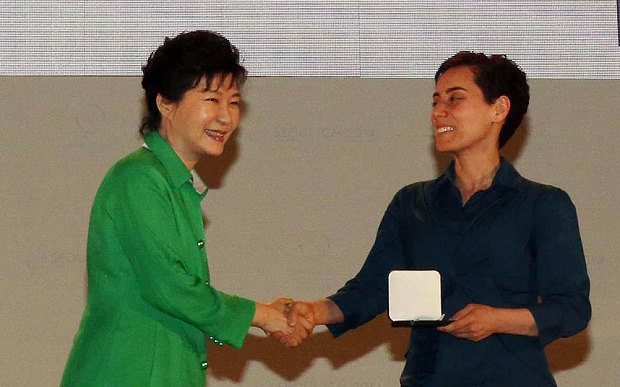By Katy Murphy
The Oakland Tribune.
STANFORD
A Stanford mathematician will be the first woman to receive the prestigious Fields Medal, often described as the mathematician’s Nobel Prize.
Maryam Mirzakhani — who studies the symmetry of curved surfaces and other theoretical concepts known as “pure mathematics” — also will be the first Stanford professor to be awarded the medal since 1966, according to the university.
The award is given every four years to no more than four mathematicians, all of whom are 40 or younger. She will receive it Wednesday in Seoul, South Korea.
“This is a great honor. I will be happy if it encourages young female scientists and mathematicians,” she said in a news release from Stanford. “I am sure there will be many more women winning this kind of award in coming years.”
Born and raised in Iran, Mirzakhani won gold medals at two International Math Olympiads competitions as a teenager, with a perfect score in the second one.
She came to the United States in 1999 for her graduate work, studying under Harvard professor and Fields Medal recipient Curtis McMullen.
She joined the Stanford faculty in 2008 and lives in Palo Alto with her husband and 3-year-old daughter.
“I don’t have any particular recipe,” Mirzakhani said of her approach to problem-solving in the news release.
“It is the reason why doing research is challenging as well as attractive. It is like being lost in a jungle and trying to use all the knowledge that you can gather to come up with some new tricks, and with some luck you might find a way out.”
News of the award spread quickly on social media. Fellow mathematician Izabella Laba of the University of British Columbia celebrated the achievement in a blog post Tuesday titled, “Maryam Mirzakhani makes history.”
“Mirzakhani’s selection does exactly nothing to convince me that women are capable of doing mathematical research at the same level as men,” she wrote. ” … What I take from it instead is that we as a society, men and women alike, are becoming better at encouraging and nurturing mathematical talent in women, and more capable of recognizing excellence in women’s work.”














































































































































































































































































































































































